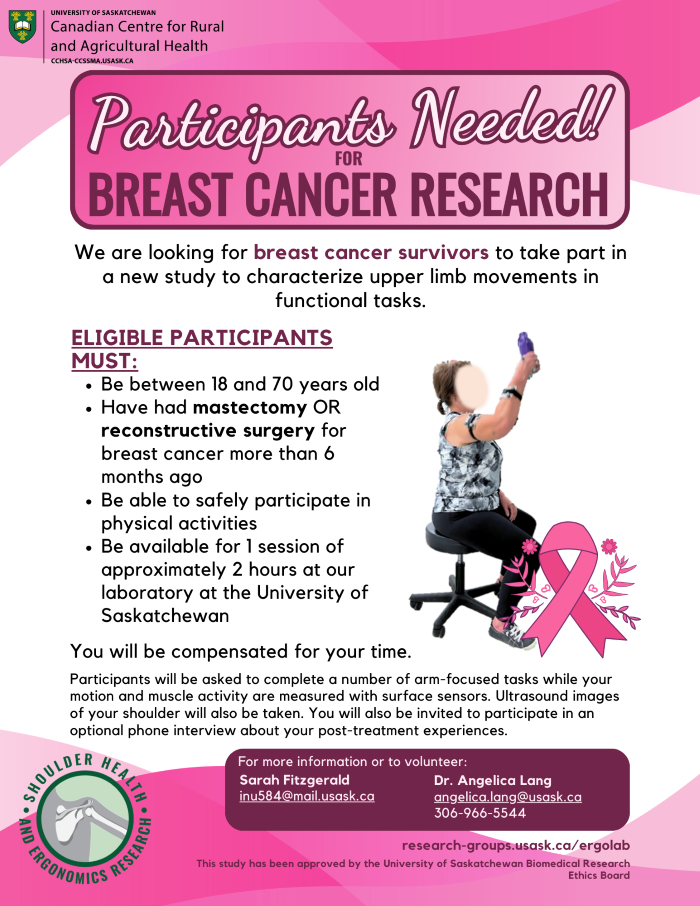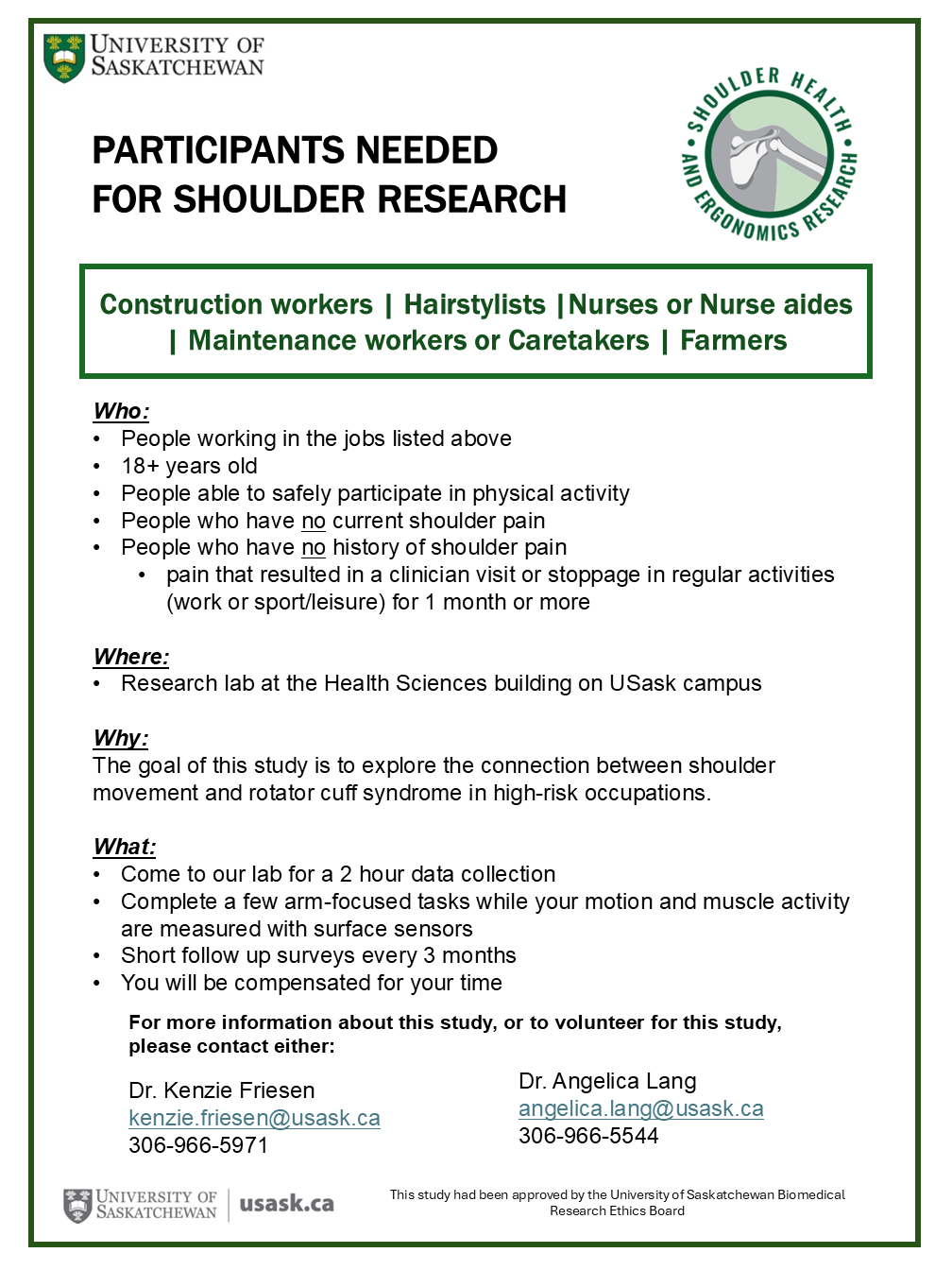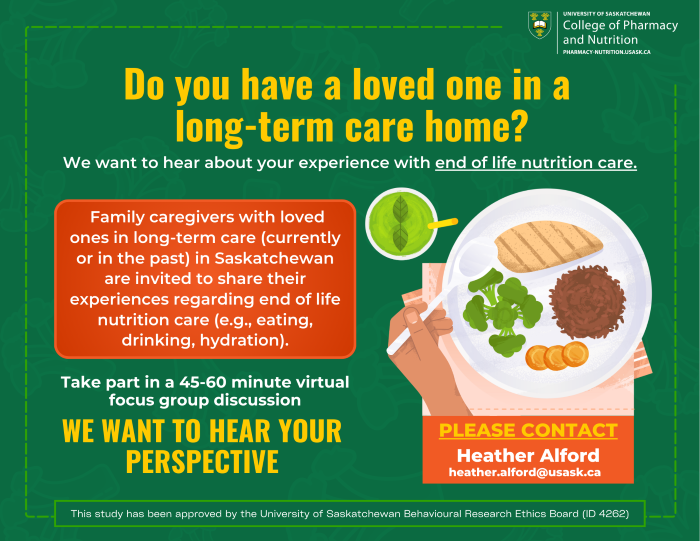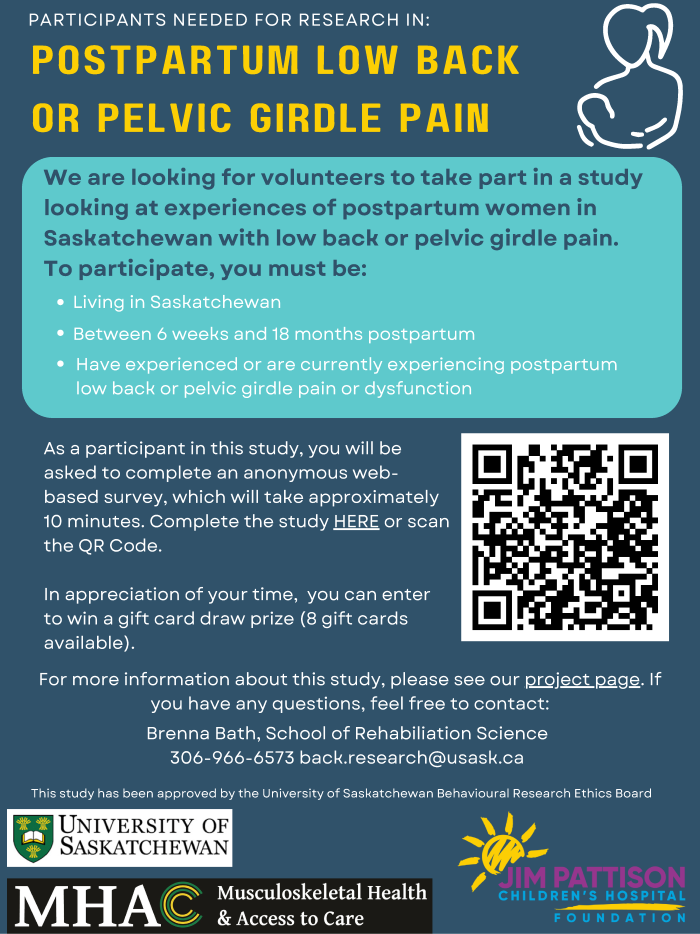Shoulder Health and Ergonomics Research Laboratory

Biomechanical analysis of the impact of reconstruction and mastectomy
Breast cancer is the most common cancer in Canadian women, but the survival rate is very high when diagnosed and treated early. However, many survivors experience upper limb problems after routine treatment, and these problems may be worsened by breast reconstruction. The goal of this project is to define upper limb body motion in breast cancer survivors with and without shoulder pain following breast cancer surgical procedures.

Rotator Cuff Injury Study
The goal of this study is to explore the connection between movement patterns and rotator cuff syndrome in high-risk occupations. The long-term aim is to improve the prevention and treatment of rotator cuff syndrome.
Rural Dementia Action Research (RaDAR)

End of Life Nutrition Care
We are looking for family caregivers with loved ones in long-term care (currently or in the past) to share their experiences regarding needs and existing supports for making decisions about end of life nutrition care (e.g., eating, drinking, hydration) in the Saskatchewan long-term care context.
Musculoskeletal Health and Access to Care (MHAC)

Bridging Access to Physiotherapy Care Gaps for Saskatchewan Mothers: Experiences of Postpartum Women and Health Care Providers
The goal of this project is to understand current gaps and opportunities for maternal health services, specifically physiotherapy care, among women with postpartum low back and pelvic girdle pain and dysfunction in Saskatchewan. The findings will lead to improved clinical outcomes and quality of life for postpartum women across Saskatchewan.
We are hoping to recruit mothers from rural and remote Saskatchewan communities. Please see more information about participating in this project HERE.
Partner Organizations

Researchers from the University of Toronto are inviting persons living with dementia, care partners, and healthcare providers to take part in a research study exploring how people access and use assistive technologies (ATs) at home.
Assistive technologies include products—such as reminder apps, stove safety switches, or walkers—and services—such as assessments, training, or maintenance that help people choose, use, or repair these products.
The study aims to better understand people's experiences and your input will help us identify gaps and improve AT availability and access for dementia management across Canada.
If you or someone you know is interested in participating, contact ot.dementiabundles@utoronto.ca to learn more or to participate.

